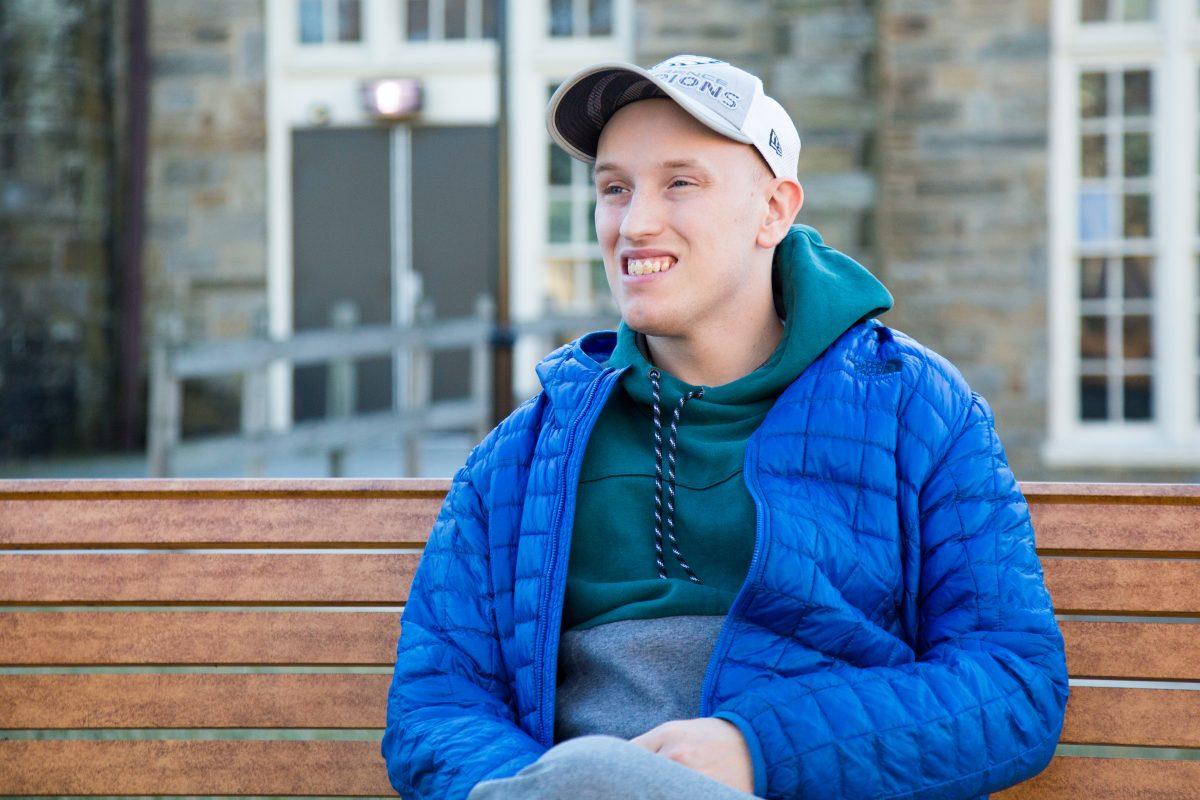The importance of autism training programs for police
Police departments nationwide are beginning to offer autism training programs in an effort to educate and instruct officers for when they encounter individuals with autism in their communities.
The likelihood of such encounters is high. About one in 68 school-aged children have autism spectrum disorder (ASD), according to the Centers for Disease Control and Prevention. People with ASD may have an impaired sense of danger, delayed speech and language skills and sensory perception issues. These symptoms can complicate interactions with police officers.
Mike Lyons, Ph.D., assistant professor of communication studies, said his biggest worry is that his 15-year-old son Max will run from the police.
“I live in a heavily policed neighborhood, and there’s a police station two blocks from us,” Lyons said. “So there’s a lot of police around us. But he’s afraid of the police. I don’t think it’s because he’s ever seen the police act rough with anyone. He has a particular sensitivity to noise. Police cars really scare him, fire engines, ambulances. So my biggest fear is that he would run from them, and they would chase him, thinking he was doing something wrong.”
Lindsey DelCarlino, assistant director of programs at the Kinney Center, said the range of behaviors that people with autism exhibit can be challenging for police officers.
“Autism is a spectrum disorder, meaning someone who has autism might be very high-functioning and is able to communicate and go to college, but they might shut down when they face a challenging problem,” DelCarlino said.
Lyons said that his son Max often deals with stress by quoting lines from movies that he has memorized.
“If he’s under a lot of stress, he’ll say something from a movie,” Lyons said. “People in the past have misinterpreted that he’s saying it to them, but he’s not. He’s saying it to nobody. It’s just a stress release for him. Police officers tune in to what people say and respond in accordance to what people say. People with autism may say something that has no direct relevance to the situation.”
Michael Cialini, of Egg Harbor Township, N.J., whose 16-year-old son Nick has autism, said his biggest fear is an officer who is inexperienced with Nick’s “ticks.”
“It’s a no-win situation for the officer,” Cialini said. “If he comes on too aggressively, he may traumatize the child. However, failure to follow his instincts may also lead to problems if that particular child doesn’t have any disability.”
Cialini said he is confident his son would feel comfortable and know how to react if he were approached by a police officer.
“Luckily, Nick’s uncle is a retired Atlantic City police officer,” Cialini said. “Growing up, Nick saw his uncle frequently in uniform and armed. We have always taught Nick to show any law enforcement officer the utmost respect. When he was young and out in public, he would always go up to an officer to shake his or her hand.”
That is the same lesson that Lyons has offered his son.
“Be respectful and listen to what they say,” Lyons said. “Do what they tell you to do, basically a high level of respect and caution.”
Police officers who attend autism training sessions are working to handle potential confrontations that are result of wide-ranging symptoms that can be unpredictable, especially in stressful situations.
Michael Mulhern, a six-year veteran of the Burlington County, New Jersey, police force, said his department has instituted autism training sessions.
“We call it ‘Deescalation Training’” Mulhern said. “I am not allowed to discuss exactly what we went over in the training program, but it is basically a week-long course all officers are required to attend. It is a pretty broad spectrum coverage class that talks about the disabilities, anywhere from autism to any other possible disability. It teaches you how to react with them on their personal level, and if there are any signs of distress or something like that, it gives you the tools and contact information to get them the help they require.”
Mulhern added that the course cannot train each individual officer for every possible scenario, but the course covers behavioral traits of people with autism.
“Every scenario will obviously be different, but law enforcement knows it is an issue that can spin out of control,” Mulhern said.
DelCarlino said the Kinney Center does not work directly with the Lower Merion Police department or the Philadelphia Police department. However, Kinney Center staff provide autism advocacy training for faculty members throughout campus as well as for members of Residence Life and the Office of Public Safety and Security.
“It is great to have Public Safety onboard just in case there are instances of concern, especially with Residence Life,” DelCarlino said. “If Residence Life were to call for any sort of concern to Public Safety, they can be more aware about better ways to provide a little more sensitivity.”
The Kinney Center is also working on identification cards that students with autism can carry with them. “If they are not able to communicate, maybe they can be trained to present this card, and maybe that is more helpful for them,” DelCarlino said.
DelCarlino said she believes an increased recognition of autism is one of the main reasons why police departments around the country are taking the time to learn how people with autism act.
“Having this awareness and information now on hand makes it easier for officers to help these individuals in our community,” DelCarlino said.














































